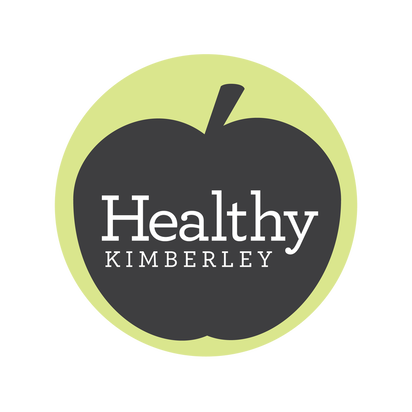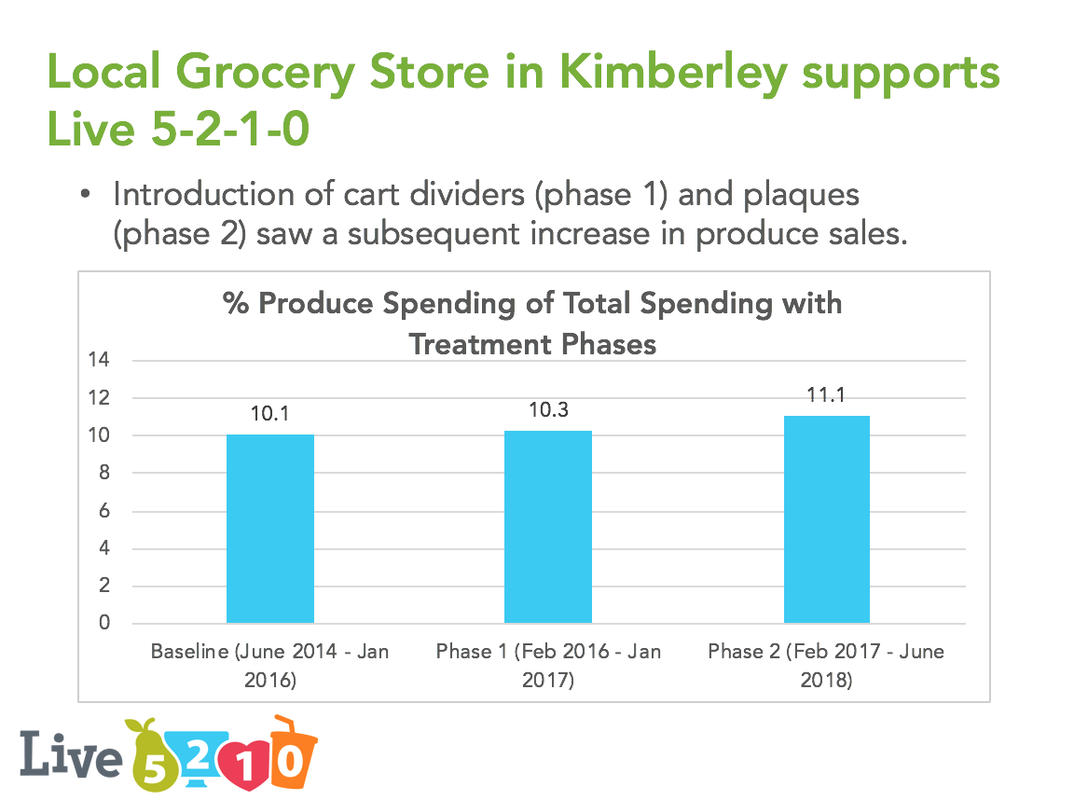What makes a healthy rural community?
| what_makes_a_healthy_rural_community.pdf | |
| File Size: | 208 kb |
| File Type: | |
Nudge Marketing in Grocery Stores-Complete!
Based on promising results from other researchers, since 2015 we have had different types of signs installed in the grocery carts at Mark Creek Market. We have finished analyzing all of the data and there was a small but statistically significant increase in produce purchases during the intervention. Stay tuned for the full report! Thank you to Vaughn Jarrett from Mark Creek Market for all of your help with this!
Perceptions of Obesity Prevention in Infancy – Published!
Our research team spoke with 33 parents of infants to learn more about how they felt about education on obesity prevention during infancy. We gained a lot of valuable insights which have assisted us in designing the next phase of the research. Thank you to all of the participating parents! To see the Feeding Roles parent information brochure go to: https://drive.google.com/file/d/1rs5LJcxA5du2Cz2XqqJHljfQAIXA1WBY/view?ths=true
http://cmajopen.ca/content/7/1/E81.full
RAISE (Raising Infants to be Smart Eaters)
Based on what we learned from the parents in the earlier research project, we have now designed a pilot project to test our new education program with parents of newborns. We have now completed recruitment and are working with public health nurses who are teaching participants about how to help parents teach their children healthy habits from the start!
https://drive.google.com/file/d/1g8E3CSwh2juP1PT2c2J88WtWyLpX7im5/view?ths=true
RAISE 2.0
We are busy gathering a larger team to plan and conduct the next phase of the RAISE study, implementing what we learn from the pilot in larger centres across Canada.
Re-examining Routine Growth Monitoring
Parents in the Parent Perceptions study told our team that routine growth monitoring in infancy can cause a lot of anxiety, confusion and guilt. Our team decided to explore this further and found that, despite this being a routine practice, with most babies being weighed and measured many, many times during infancy, there is very little evidence supporting the practicing or investigating the potential harms of this well-established practice. We are beginning with a formal literature search, a provincial practitioner survey on growth monitoring practices as well as provincial database analysis of routine growth monitoring. We also plan to do a follow-up study of parent perceptions of routine growth monitoring and a chart review from a large paediatric centre to better understand how often this practice actually leads to meaningful diagnoses.
Healthy Kimberley 2020
To gain a better understanding of what makes our community uniquely healthy and to learn more about what we can do to make Kimberley even healthier, we have completed conducting interviews with key stakeholders across multiple sectors. The results will not only benefit our community but also give some insights which may help other rural communities. Stay tuned for the full report soon! We have also expanded our research to Sparwood, Merritt and other communities to see how different communities perceive their community's health and learn more about what other communities are doing to be healthy.
Kimberley Medical Clinic – Healthy Habit Questionnaires
With the start of the Healthy Kimberley initiative in 2015, we did a baseline survey of families coming to the clinic and followed it up a year later to see if people were hearing the new health messages and they were! In some cases there were also changes in peoples’ behaviour as a result of the new information.
Based on promising results from other researchers, since 2015 we have had different types of signs installed in the grocery carts at Mark Creek Market. We have finished analyzing all of the data and there was a small but statistically significant increase in produce purchases during the intervention. Stay tuned for the full report! Thank you to Vaughn Jarrett from Mark Creek Market for all of your help with this!
Perceptions of Obesity Prevention in Infancy – Published!
Our research team spoke with 33 parents of infants to learn more about how they felt about education on obesity prevention during infancy. We gained a lot of valuable insights which have assisted us in designing the next phase of the research. Thank you to all of the participating parents! To see the Feeding Roles parent information brochure go to: https://drive.google.com/file/d/1rs5LJcxA5du2Cz2XqqJHljfQAIXA1WBY/view?ths=true
http://cmajopen.ca/content/7/1/E81.full
RAISE (Raising Infants to be Smart Eaters)
Based on what we learned from the parents in the earlier research project, we have now designed a pilot project to test our new education program with parents of newborns. We have now completed recruitment and are working with public health nurses who are teaching participants about how to help parents teach their children healthy habits from the start!
https://drive.google.com/file/d/1g8E3CSwh2juP1PT2c2J88WtWyLpX7im5/view?ths=true
RAISE 2.0
We are busy gathering a larger team to plan and conduct the next phase of the RAISE study, implementing what we learn from the pilot in larger centres across Canada.
Re-examining Routine Growth Monitoring
Parents in the Parent Perceptions study told our team that routine growth monitoring in infancy can cause a lot of anxiety, confusion and guilt. Our team decided to explore this further and found that, despite this being a routine practice, with most babies being weighed and measured many, many times during infancy, there is very little evidence supporting the practicing or investigating the potential harms of this well-established practice. We are beginning with a formal literature search, a provincial practitioner survey on growth monitoring practices as well as provincial database analysis of routine growth monitoring. We also plan to do a follow-up study of parent perceptions of routine growth monitoring and a chart review from a large paediatric centre to better understand how often this practice actually leads to meaningful diagnoses.
Healthy Kimberley 2020
To gain a better understanding of what makes our community uniquely healthy and to learn more about what we can do to make Kimberley even healthier, we have completed conducting interviews with key stakeholders across multiple sectors. The results will not only benefit our community but also give some insights which may help other rural communities. Stay tuned for the full report soon! We have also expanded our research to Sparwood, Merritt and other communities to see how different communities perceive their community's health and learn more about what other communities are doing to be healthy.
Kimberley Medical Clinic – Healthy Habit Questionnaires
With the start of the Healthy Kimberley initiative in 2015, we did a baseline survey of families coming to the clinic and followed it up a year later to see if people were hearing the new health messages and they were! In some cases there were also changes in peoples’ behaviour as a result of the new information.


